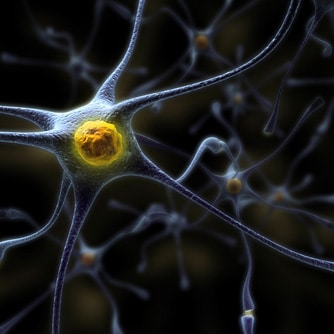Men and women afflicted by Alzheimer’s Disease display loss of synapses – connections between brain cells, leading to memory loss and other cognitive impairments. Richard Wurtman, from Massachusetts Institute of Technology (MIT; Massdachusetts, USA), and colleagues have formulated a mixture of three naturally occurring dietary compounds: choline, uridine and docohexaenoic acid (DHA). Choline can be found in meats, nuts and eggs, and omega-3 fatty acids are found in a variety of sources, including fish, eggs, flaxseed and meat from grass-fed animals. Uridine is produced by the liver and kidney, and is present in some foods as a component of RNA. Docohexaenoic acid (DHA) is an omega-3 fatty acid, best known for its role in promoting cardiovascular health. Collectively, these three nutrients are precursors to the lipid molecules that, along with specific proteins, make up brain-cell membranes, which form synapses. To be effective, all three precursors must be administered together. The researchers followed 259 patients for six months. Patients, whether taking the nutrient blend or a placebo, improved their verbal-memory performance for the first three months, but the placebo patients deteriorated during the following three months, whereas the nutrient blend patients continued to improve. Further, electroencephalography (EEG) studies revealed changes in brain-activity patterns throughout the study: as the trial went on, the brains of patients receiving the nutrient blend started to shift from patterns typical of dementia to more normal patterns. Because EEG patterns reflect synaptic activity, the researchers submit that synaptic function increased following treatment with the nutrient blend.
“Nutrient Cocktail” Improves Alzheimer-Related Memory Decline
Philip Scheltens, Jos W.R. Twisk, Rafael Blesa, Elio Scarpini, Christine A.F. von Arnim, Richard J. Wurtman, et al. “Efficacy of Souvenaid in Mild Alzheimer’s Disease: Results from a Randomized, Controlled Trial.” J Alzheimer’s Dis., Volume 31, Number 1, July 2012, Pages 225-236.
RELATED ARTICLES




